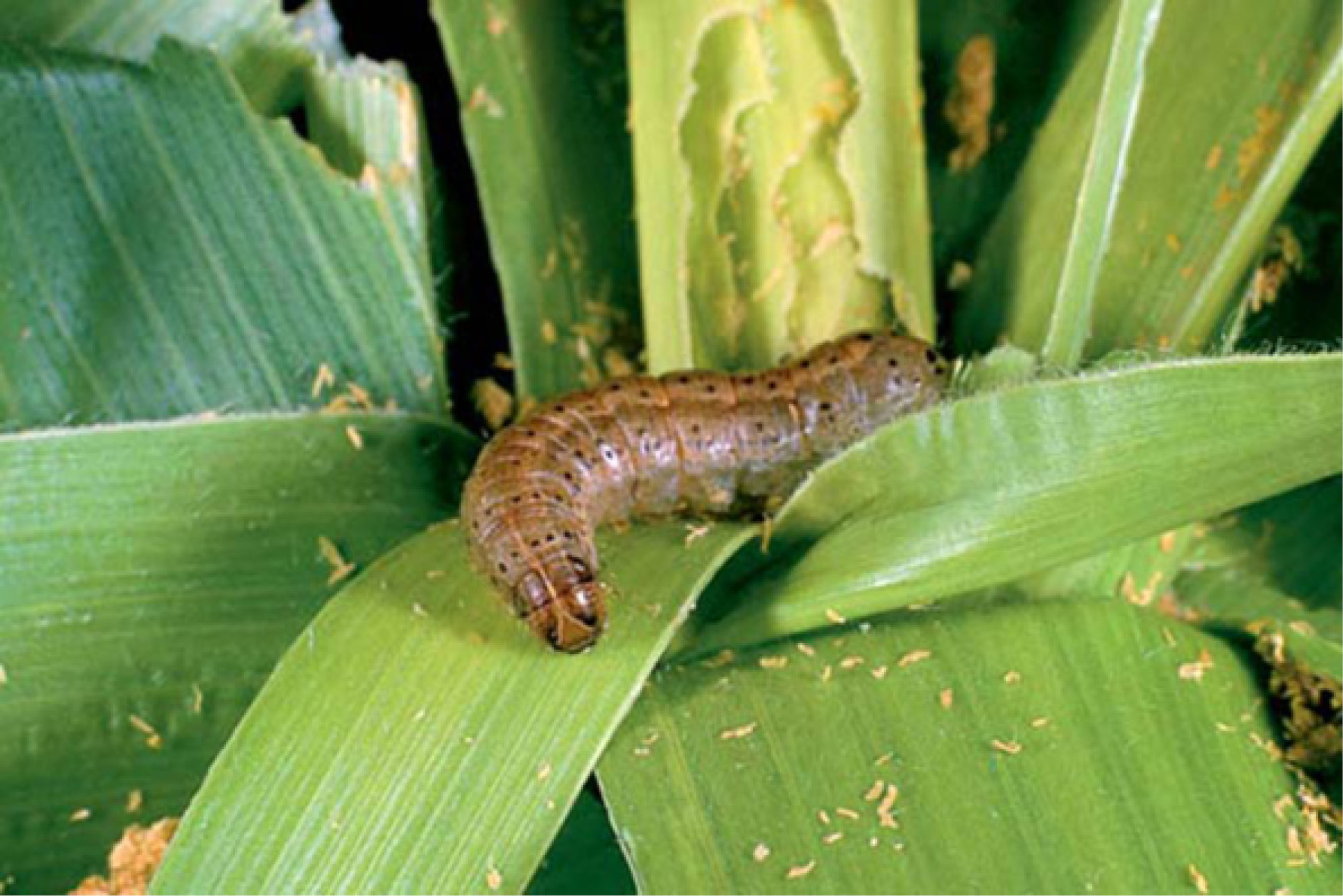Harvest: Why rain-fed farmers are worried
Farmers in some parts of the country are expressing concern over late arrival of the rains or irregular rainfall in areas that wet season had already set in. The situation, they fear, may affect farm yields. Some of them who spoke to Daily Trust said they have to replant their crops because there were periods […]

Many wet season maize farmers are frightened by the threats of Armyworms on their farms
Farmers in some parts of the country are expressing concern over late arrival of the rains or irregular rainfall in areas that wet season had already set in. The situation, they fear, may affect farm yields.
Some of them who spoke to Daily Trust said they have to replant their crops because there were periods of cessation of rainfall forcing them to buy seeds again.
In Doma, Nasarawa State, rice farmers who planted early in June are faced with the issue of buying seeds to replant bacause the crops have wilted due to the inconsistent rains.
“I used 400kg of certified seeds in my four hectares farm. At the time I broadcast the seeds but there was no rain for almost two weeks thereafter so most parts of the farm did not germinate due to excessive heat during the period. You can imagine I spent N192,000 to buy the Faro 44 only for me to lose almost everything.
“Last week, I had to buy rice seed from the open market to replant in the areas where those planted did not germinate,” Esson Asla, told Daily Trust.
His experience is similar to many farmers’ who used the zero system of rice cultivation. Many of them are going to plant again.
Unlike Mr Asla, however, some farmers also have to battle grasshoppers during the cessation of rainfall. The pests did not also spare other crops like maize as they ate them up.
Abdullahi Abubakar and David Abimiku in Lafia said fall armyworms are also damaging maize besides the grasshoppers and they fear that will lead to poor harvest.
Many maize farms are said to have been affected by long absence of rain and armyworm invasion.
Our correspondent in the state reported that several hectares of maize farms have been damaged by the worms, who the farmers said had defied solution so far.
Speaking on the cost of inputs, a farmer, Danjuma Ibrahim in Akwanga, Nasarawa State, told Daily Trust that Urea Fertiliser was becoming more expensive as a bag of Indorama fertilizer is sold at N7,500 while Notore goes for N8,000 – same situation in most parts of the state.
However, the price of NPK 20:10:10, which is a product of the Presidential Fertiliser Initiative is still accessible at N5,500 in some parts and N6,000 or more in some villages.
He said the imported brand of the NPK 15:15:15 goes for N9,000.
“If you put together the cost of fertilizer, certified seeds, agrochemicals and labour, I don’t think a smallholder farmer can really make any significant profit.
“This year, I’m not doing maize because its price in the market now is far less than the cost it will take you to produce. For you to get good yield that will reduce the cost of production, you have to spend more on fertilizer because even the soil these days is weak,” Mr Ibrahim stressed.
Although NIMet has earlier advised farmers to consider drought tolerant varieties in certain areas of the North, many farmers who spoke to Daily Trust lacked basic information on weather – indicative of the weak nature of the extension delivery mechanism in the country.
